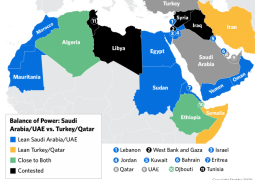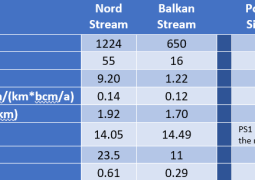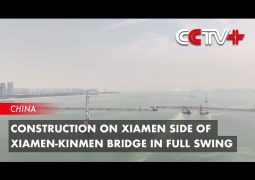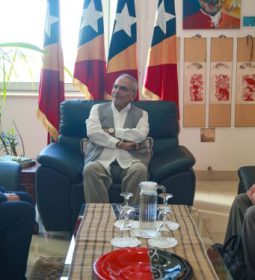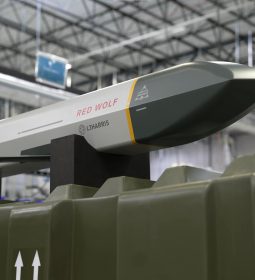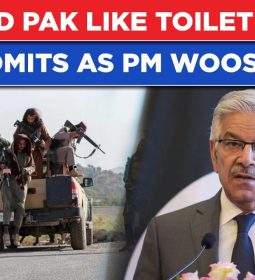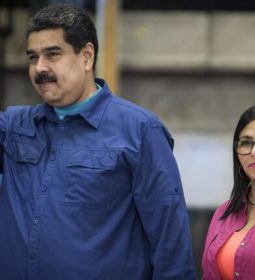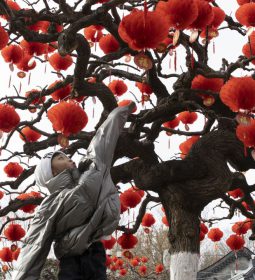13 canadian provincial PMs promise on a visit to US: we will decouple from China and Beiging “is common economic enemy”
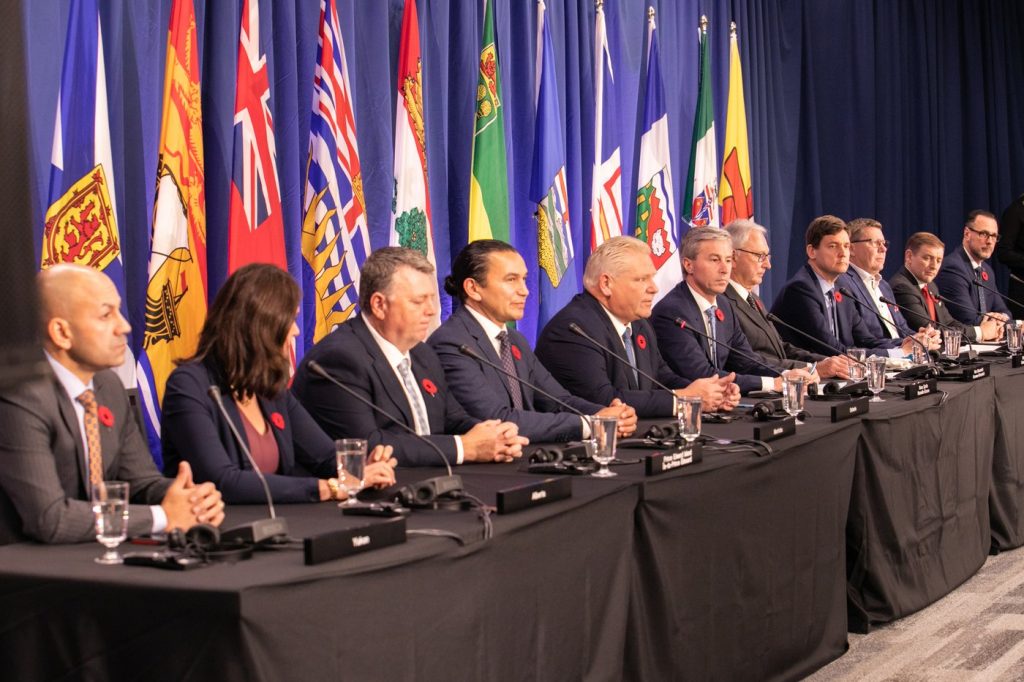
By Bochen Han
Bracing for tariffs, provincial leaders seek to win over ‘results-oriented’ White House and ‘protect ourselves from the likes of China’
All 13 of Canada‘s premiers have descended upon Washington in an unprecedented effort to remind American officials that their northern neighbour is a pivotal partner as the US weighs imposing tariffs on Canadian imports.
Led by Ontario Premier Doug Ford, the high-profile show of concern features a pitch to enlist Canadian provinces as the US seeks, in Ford’s words, a “decoupling from China and its global proxies”.
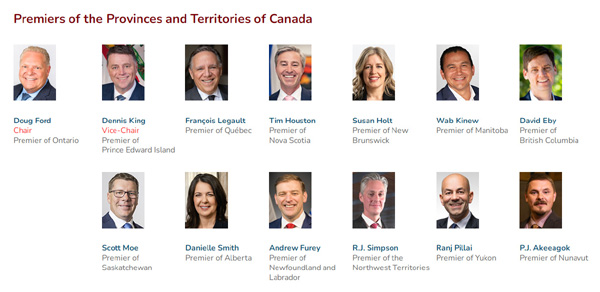
“Doing so will be no easy task,” Ford told a gathering of the US Chamber of Commerce in Washington on Tuesday.
Do you have questions about the biggest topics and trends from around the world? Get the answers with SCMP Knowledge, our new platform of curated content with explainers, FAQs, analyses and infographics brought to you by our award-winning team.
“It will require long-term thinking, it will require dedication, and most of all, it will require friends and allies like Canada and Ontario, and I can tell you, Canada is here to help,” he said.
Calling China the “common economic enemy”, Ford invoked familiar US proposals for Canada to adopt, such as ending Chinese transshipments through Mexico as well as matching or exceeding American tariffs on mainland products, including EVs, batteries, aluminium and steel.
He also urged protections against Chinese investment and ownership in strategic sectors like critical minerals and energy, including a
“It’s China that wants to ship in cheap steel, cheap aluminium and undermine American and Canadian jobs,” Ford said. “Let’s work together and protect ourselves from the likes of China.”
Ford, chair of the group of 13 premiers known as the Council of the Federation, struck a conciliatory note despite US President Donald Trump‘s announcement on Monday that the US would impose 25 per cent tariffs on all imported steel and aluminium – a move that would hit Ontario hard.
It contrasted sharply from his defiant tone earlier this month when Trump announced 25 per cent tariffs on almost all imports from Canada, initially set to take effect on February 4 before implementation was delayed by 30 days.
Ford had said he would rip up a contract with Trump adviser Elon Musk‘s Starlink internet service, with Canadian Prime Minister Justin Trudeau threatening retaliatory tariffs and Canadians cancelling US holidays and circulating ‘buy Canadian’ product lists.
This week, Ford opted to reinforce some of Trump’s other stated priorities, such as combating fentanyl smuggling and having allies devote more to shared defence.

Speaking on Tuesday, the premier vowed to work to audit any financial institution suspected of funding gangs or cartels and to push the Canadian federal government to exceed Canada’s current Nato defence spending commitment of 2 per cent of GDP.
He also proposed building “a critical mineral security alliance” so that both American and Canadian supply chains would be less reliant on China.
Ford, whose province is Canada’s manufacturing heartland, called the US-Canada trade war “totally unnecessary” and argued the countries were “stronger together”.
For months, Ontario has been running a multimillion dollar ad campaign in the US, on television and bus stops in the US capital. One ad that ran during the Super Bowl on Sunday stated: “You can rely on Ontario for energy to power your growing economy and for the critical minerals crucial to new technologies.”
The trip by all the leaders of Canada’s 10 provinces and 3 territories is unprecedented, as Canadian premiers almost never make foreign trips as a group.
Beginning on Tuesday and continuing throughout the week, the premiers are meeting in Washington with business leaders, think tanks and US lawmakers to highlight the deep and often overlooked ties binding the countries.
They are also expected to meet Trump advisers at the White House, according to a Wednesday press release from the Council of the Federation, contrary to earlier statements that no meetings with administration officials were planned.
In a demonstration of unity on Wednesday, 12 of the 13 posed for photos together before embarking on their first meetings as a group.
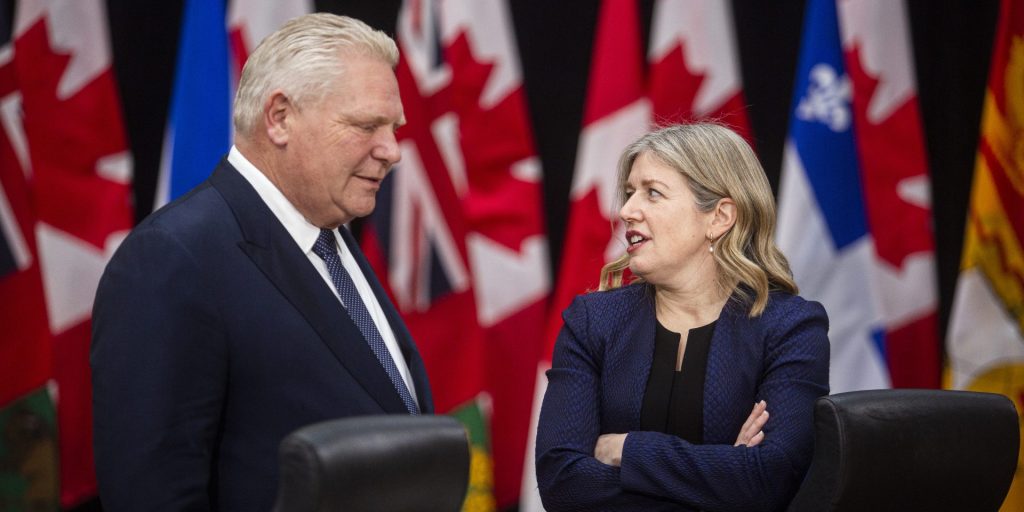
Some Canadian observers have cast doubt on the potential effectiveness of the Washington visit, noting that the US continued to announce the steel and aluminium tariffs even after Canada made promises to jointly tackle transnational crime and fentanyl smuggling to stave off the first round of tariffs this month.
The premiers on Wednesday defended their trip and their diplomatic overture.
“We are getting a lot of support from the Americans that we’re meeting with, businesses, senators, congresspeople alike, who all agree that these tariffs are going to have a negative impact on the US,” said New Brunswick Premier Susan Holt.
Ford justified his softened approach on Wednesday, saying that early meetings had been “productive”, while Quebec Premier Francois Legault said retaliation from Canada should come “only if” US tariffs come into effect, not before.
Diplomacy’s virtues aside, Trump would need concrete evidence of Canada following through on its promises before backing away fully from tariffs, according to Xavier Delgado of the Wilson Centre, a Washington-based think tank.
“The White House is results-oriented and before they take the threat of tariffs off the table they’re going to want to see some results.”
Delgado said the message of aligning with the US on China was unlikely to prove as effective as the premiers might hope.
“The US is holding China as a very high foreign-policy priority, but is also holding certain issues that they take with Canada and Mexico a top priority,” he said.
Yet given the current tensions in the bilateral relationship, Delgado expected greater policy alignment overall to ensue between the allies, including on China.
Recent years have seen a gradual alignment between US and Canadian strategies related to China, with rhetoric picking up as the two are poised to review a free-trade deal with Mexico in 2026.
Following America’s lead, Canada imposed 100 tariffs on Chinese EVs.
And similar to the US, Canada established a foreign-agents registry to confront covert influence by countries like China. In addition, it took a hit at Chinese-owned short-video app TikTok and banned Chinese tech giant Huawei Technologies from installing equipment in Canadian 5G networks.

In 2023, a Canadian legislative committee focused on China also carried out travel to Washington to meet with American lawmakers.
The US and Canada are typically each other’s top trading partners.
But Canadian provinces differ in their level of trade with China. While Manitoba, for instance, accounts for only 5.4 per cent of Canada’s exports to China, British Columbia contributes a significantly larger share at 29.2 per cent.
As some premiers have also hopped on the tough-on-China messaging in the days leading up to this week’s Washington trip, British Columbia Premier David Eby has been largely silent in critiquing Beijing.
Asked on Wednesday whether he thought Beijing would retaliate against Canada’s China messaging, Eby simply said: “If the Americans’ target is China, putting tariffs on Canada is the exact wrong thing to do.”
Pascale Massot of the University of Ottawa, who formerly served in Canada’s foreign ministry, believed it was too early to say whether a united front would form on China.
“It is difficult to tell what exactly President Trump would be satisfied with, if anything at all,” said Massot.
Short of “specific demands made in a formal context”, she added, “different provinces, especially those more exposed to bilateral trade with China, may not want to take on a trade fight on both fronts simultaneously”.
Massot described Ford’s sales pitch on China as mostly repackaged existing policies rather than introducing anything new, noting he is facing re-election on February 27.
“Chinese FDI flow into Canada is at an all times low,” she said. “Not sure a lot needs to be done to decrease it even further.”
More Articles from SCMP
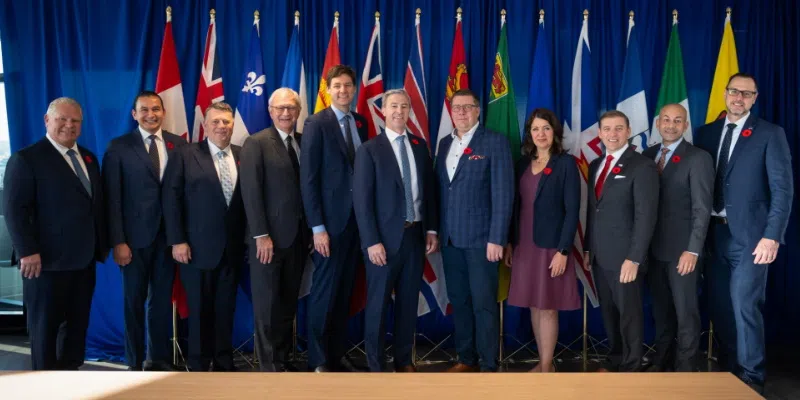
This article originally appeared on the South China Morning Post (www.scmp.com), the leading news media reporting on China and Asia.
Copyright (c) 2025. South China Morning Post Publishers Ltd. All rights reserved.
- Previous Effect of Sake: Japanese government workers keep losing sensitive data while drunk
- Next If your CEO gynecologist and was helping Biden: US – Europe will be excluded from Russia-Ukraine peace talks,





